What is Internal Audit?
The purpose of audit services is to assist University personnel by conducting internal audits of University operations in a comprehensive, professional and objective manner.
Audits include:
- Evaluating compliance with applicable laws, rules and regulations, policies and procedures
- Review of internal controls
- Evaluating efficiency of operations
Types of Audits Performed:
- Financial Audits
- Operational Audits
- Compliance Audits
- Investigative or Fraud Audits
- Miscellaneous Audits
Audit Process
- Select an Audit Engagement
- Create Audit Program
- Notify Department Head of Audit Plans
- Planning
- Entrance Conference
- Fieldwork
- Draft Report
- Exit Conference
- Audit Report
- Follow-up Report
Internal Controls
Collection of processes that are intended to provide reasonable assurance that a department’s activities are:
- effective and efficient
- providing reliable financial information
- incompliance with applicable laws and regulations, including University policies
University management, not Internal Audit, is responsible for creating and maintaining a
good system of internal controls. Internal Audit can provide evaluations of systems already in place.
Examples of Internal Control:
- Physical Safeguards
- Separation of Duties
- System of Approvals
- Periodic Reconciliations
- Controls on the Handling and Deposit of Funds
Audit Tips
- Be honest.
- Don't Worry. Don't waste time speculating about outcomes.
- Be cooperative. A fresh look at the way you do business will benefit your department.
- Listen carefully before answering. If needed, ask for clarification.
- Keep your answers direct and to the point.
- If you don't know the answer, say so.
- Locate requested documentation promptly.
- Be positive, not defensive. You will have the opportunity to respond.
How can your department benefit from an audit?
- Provide an objective assessment of areas of interest to management.
- Identify business strengths and opportunities for improvement of efficiency and effectiveness in the department's daily operations.
- Facilitate discussions with departmental employees to develop solutions to problems and promote operational efficiency.
- Identify deviations from management's performance standards and expectations.
- Recommend improvements to internal controls to prevent and detect problems and to protect personnel from undue suspicion.
- Positive change within the department that improve the overall results of operations.
- Investigations into possible frauds or irregularities.


